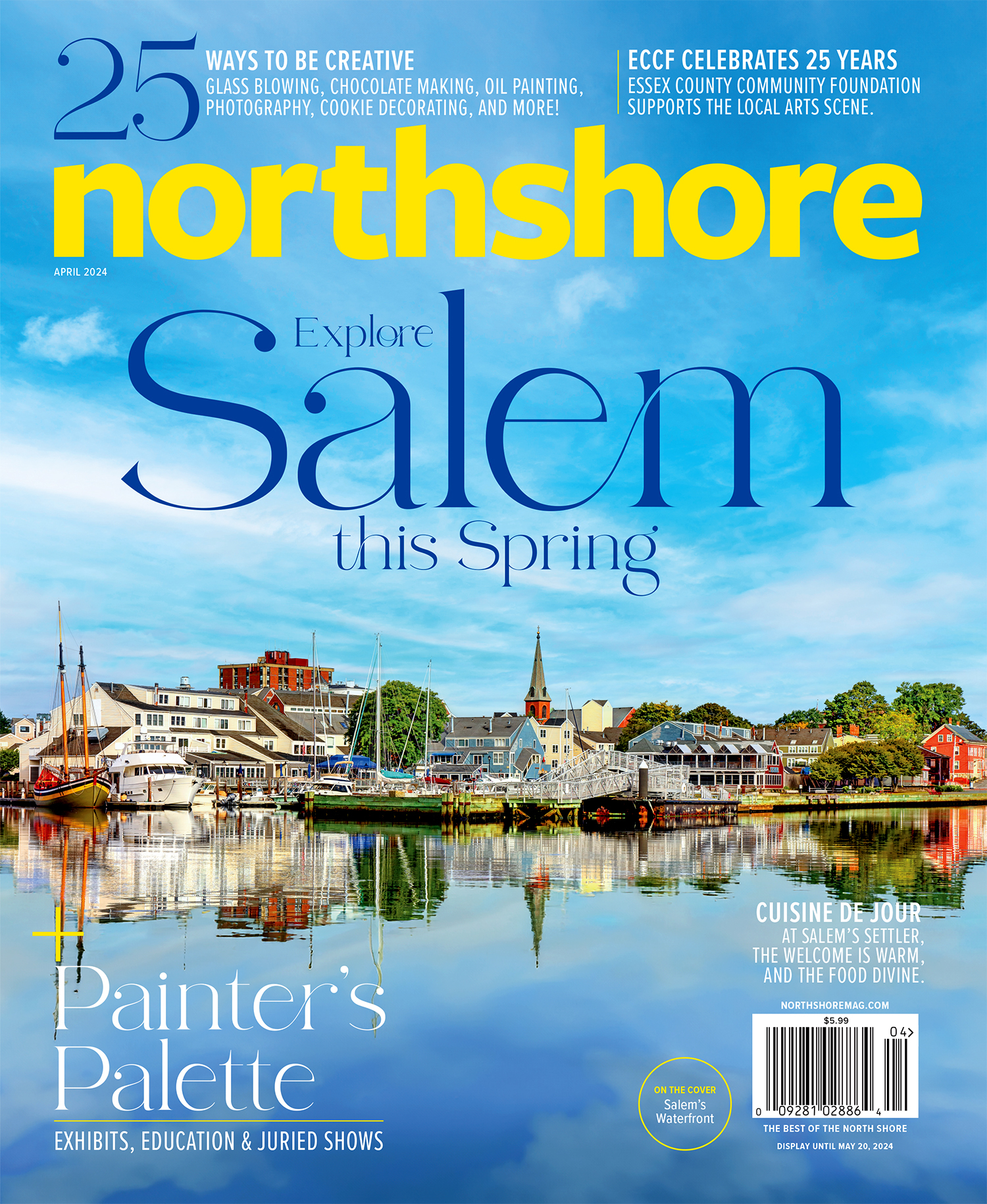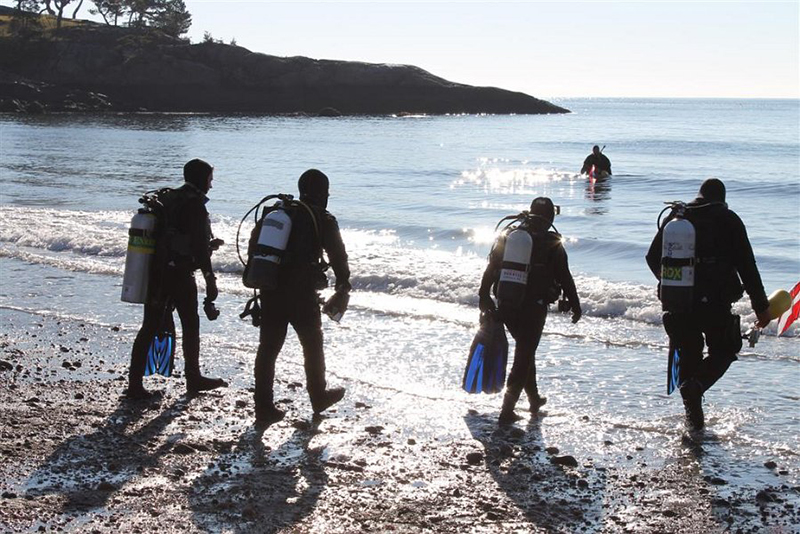From the beach at Folly Cove in Gloucester, there are two viewpoints. Look left and there’s a sheer rock wall that plunges into the sea; to the right, rocks and boulders cluster together along the shore.
“Underwater it looks exactly like that,” says Jerry Shine, but with one big difference: an abundance of sea life along the rock walls. Dive on the left side, and you’ll be rewarded with sightings of colorful anemones and weirdly shaped and colored sluglike nudibranchs. Dive on the cove’s rocky right side, and you might spot large schools of pollock or bright yellow sea ravens, maybe even squid if you dive at night.
Scuba diving typically conjures thoughts of warm, clear waters and vividly hued tropical fish and coral. That image stands in stark contrast to the cold, dark waters off of the North Shore, waters that only the heartiest of New Englanders would dare brave even on the hottest summer day. But the North Shore actually has underwater life and adventures to match—or even surpass—the tropics, and a diving community that’s eager to explore it.
“There’s a ton of marine life. There’s a misconception that everything underwater up here is gray and brown and dark and uninteresting, and that couldn’t be farther from the truth,” says Shine, who lives in Somerville and actually favors North Shore dive sites like Folly Cove, Nahant’s Canoe Beach, and Rockport’s Cathedral Rocks over warm-water diving locales.
“The richest fishing grounds in the world are all up here,” Shine points out. “They’re not in the Caribbean.”
In addition to a host of top-notch dive sites, the North Shore also boasts dive shops and clubs where people can get certified, buy equipment, and explore with a group of divers that’s as diverse as the underwater life they love to explore.
|
One of those clubs is the North Shore Frogmen’s Club, which was established in 1958 and is one of the oldest sport diving clubs in the world. It meets socially once a week, as well as for Sunday morning dives. One of its members, John Sears of Danvers, has been diving with the club for 25 years and loves underwater hunting for lobsters, flounder, and scallops to bring home and eat. He’s seen the rows of teeth in a 35-foot shark off of Chandler Hovey Park in Marblehead, been followed around by puppy-dog-like stripers eager to be fed, and seen the marks of Paul Revere’s foundry on the skeleton of the wreck of the USS New Hampshire off the coast of Manchester-by-the-Sea.
“If you take your time and slow down, you’d be amazed at all the different things you can see,” Sears says.
Whitney Boyle, general manager of Undersea Divers, a dive shop in Beverly, says anyone can become a diver.
“You can start to become a diver at only 10 years old. And don’t count yourself out if you are young or old, because we see all ages of people enjoy the sport,” Boyle says, adding that there are also diving opportunities for people of all abilities, such as the disabled, injured veterans, or amputees.
“It’s the most freeing thing to someone who is limited in mobility on land,” she says.
Undersea Divers teaches a range of Professional Association of Diving Instructors (PADI) scuba diving courses, with classes for beginners, dive professionals, and everyone in between. It also sells gear for all diving destinations, including the frigid waters of the North Shore; runs diving trips around the world; and leads twice weekly trips to diving sites on the North Shore.
“We have many people that only dive New England waters and prefer them over tropical waters,” Boyle says, echoing Shine. “They need to know they have an underwater playground right where they live, so start exploring.” northshorefrogmen.com, underseadivers.com

 Members of the Frogmen’s Club head in for a Sunday morning dive / Photo by Markus Diersbock
Members of the Frogmen’s Club head in for a Sunday morning dive / Photo by Markus Diersbock